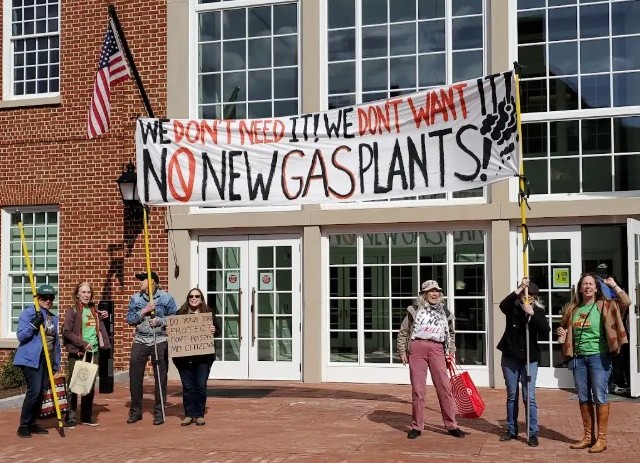
The many bills introduced on climate and energy and all the changes made to them had everyone on a roller-coaster. In mid-session, leaders of the House and Senate introduced a set of bills known as the leadership energy package. These bills would have encouraged building new methane gas plants, purportedly based on projections of future energy needs in Maryland. But, thanks to key legislators and many climate activists, including Third Act Maryland, the bills were amended to include important reforms of existing programs and additional requirements for improving the electric grid. The final bill was passed as the Next Generation Energy Act (follow the HB or SB links below for the full name). To learn more about this bill and other important advances, see their summaries below.
RENEW Act Study Bill (HB0128/SB0149) | Passed
This important bill would have Maryland join Vermont and New York in requiring fossil fuel polluters to pay for the damages their work and product has caused to the State. The original bill included a two year study period, followed by implementation of a payment system devised during the study phase. The final bill that passed kept only the study phase. This is a step in the right direction but will need more work to actually drive implementation.
Abundant, Affordable Clean Energy Act (HB0398/SB0316) | Not passed, but…
The battery storage provision for up to 1,750 megawatts from this bill was added to the Leadership Energy package (see Next Generation Energy Act below). Such large-scale battery storage is the fastest and most cost effective way to meet our short-term reliability needs and our long-term clean energy goals. It will be built with “high road” labor standards: good green jobs for a green economy.
Energy Resource Adequacy and Planning Act (HB1037/SB0909) | Passed
Creates an independent Strategic Energy Planning Office for long term energy planning in Maryland. Establishes a framework for comprehensive energy planning that considers reliability, affordability, and environmental impacts.
Next Generation Energy Act (HB1035/SB0937) | Passed
This bill began as the Leadership Energy package and was amended to include key components of other legislation. The final bill included (1) battery storage procurement of up to 1,750 megawatts, to be built with “high road” labor standards: good green jobs for a green economy (Abundant, Affordable Clean Energy Act); (2) significant reforms to utility rate-setting, including tightening requirements for multi-year rate plans and the STRIDE program (Ratepayer Protection Act); (3) removal of trash incineration from the renewable portfolio standard (Reclaim Renewable Energy Act of 2025); (4) establishment of a rate structure by the Public Service Commission to protect individual ratepayers from the electric system costs of data centers and other large users; (5) savings for ratepayers by directing utilities to use in-house workers rather than more costly contractors; (6) procurement model for new nuclear energy.
Renewable Energy Certainty Act (HB1036/SB0931) – passed
Compromise between urgency of full deployment of clean energy and importance of protecting farmland in the state: (1) standardizes siting requirements for large scale solar and battery storage projects across the state, (2) requires rooftop solar companies to follow best practices to protect customers from bad actors, (3) requires state to identify state-owned land suitable for solar energy development. Codifies language that keeps solar development confined to 5 percent of priority preservation areas; allows counties to create tougher regulations for large solar after that threshold is met; fast-tracks the Distributed Generation Certificate of Public Convenience and Necessity process for some solar projects.